Thousands flocked to spiritual leader who claimed he could multiply money. Then dead bodies turned up
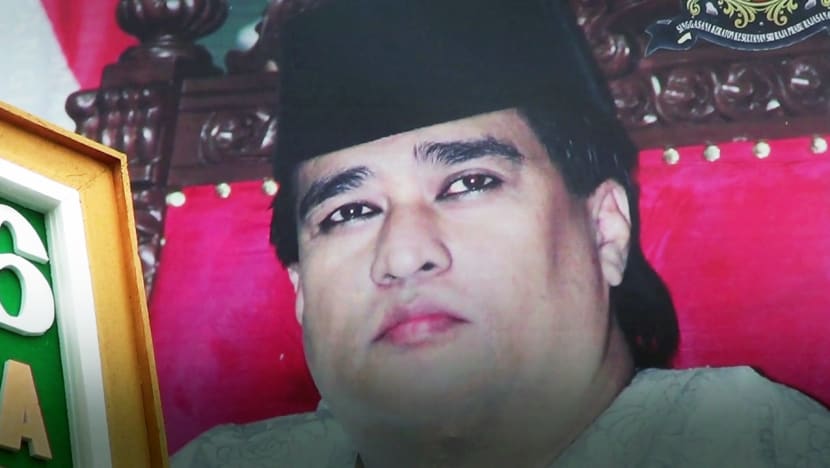
Dimas Kanjeng spoke softly and was a lot smaller than he appeared in pictures, said a prosecutor.
- Charismatic spiritual leader Dimas Kanjeng amassed thousands of followers, including high-ranking government officials.
- He convinced them that if they gave him money, they would make a substantial profit.
- Then two of his foundation’s leaders were found murdered.
- Years after he was jailed, there are still supporters loyal to him.
PROBOLINGGO, East Java: They came in droves from all over the country. Even high-ranking officials flocked to him.
At every gathering spiritual leader Dimas Kanjeng held, tens of thousands would attend, recalled businessman and lawyer Muhammad Ali. At the height of Dimas’ popularity, he was estimated to have 23,000 followers.
“I was enchanted,” Muhammad Ali said, going on to describe the spiritual leader as convincing, authoritative, and charismatic.
But it was more than just his personality. Dimas, whose real name is Taat Pribadi, claimed he had the power to multiply money – a “power” that he demonstrated to great effect among those watching him.
Word of his supposed power started spreading rapidly throughout Indonesia from 2009. In 2012, he officially registered his foundation, Padepokan Dimas Kanjeng Taat Pribadi, and started collecting even larger sums of money, and assets, from followers, promising handsome returns. Over two years from early 2014, Muhammad Ali handed over 35 billion rupiah (S$3.068 million) – and he was just one of thousands who gave the man money.
But it was also around that time that Dimas’ scam began to unravel. Then, the dead bodies of two of his foundation’s leaders were discovered and identified.
Dimas has since been unmasked as a fraud and jailed. But even today, there are some who remain loyal to him.
What exactly made him so extraordinary? The programme Catching A Scammer explores the con – and the appeal of the man himself.
LIKE ANTS TO HONEY
In 2010, local journalist Ahmad Faisol was invited to Dimas’ compound to cover a prayer and charity event. Dimas was beginning to attract followers at the time.
Security at the compound, recalled Faisol, was strict. No invitation, no entry. But it was then that he personally witnessed Dimas multiplying money.
“He asked me to come to his living room and search him,” he said.
After I searched him, he sat on the chair and put his hands behind his back. Then he conjured up the money.”
Faisol remembers seeing “a lot of money”: Around 50 million rupiah, which later went up to 100 million rupiah.
When Faisol asked how he got the ability to do this, he replied that it came after meditating in the mountains.
Dimas was also known to cure illnesses, according to another local journalist Babul Arifandie. “There were some rituals, obligations that must be carried out by the patients,” he recalled.
Babul had visited Dimas’ foundation thrice for work and remembers being “amazed” at the man’s magnetism – and his ability to collect millions of rupiah from thousands of people.
“He is like honey, and he attracts a lot of ants,” he said.
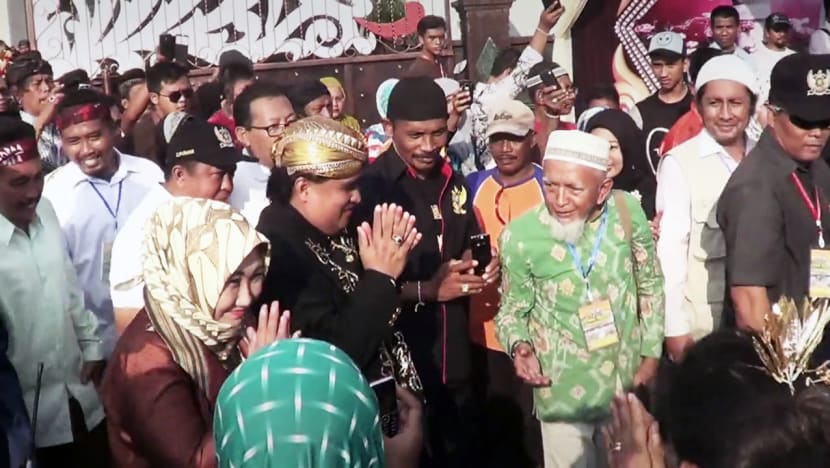
Magnetism aside, those like Muhammad Ali also noted that the foundation was financially sound and donating to social causes.
Dimas had promised to multiply the money Muhammad Ali gave. At the start, Muhammad Ali had not intended to hand over “that much money”.
“But he always said the money would be returned,” Muhammad Ali explained. That compelled him to hand over as much as he could – even selling his assets and taking a bank loan.
In return, he was given suitcases as a guarantee. Money, he was told, had been locked inside.
“If the suitcases were opened before the stipulated date, you will die, go blind … be paralysed,” he said. “That was the threat – in the end, we were scared.”
As for Lilik Riyanto, the then-finance manager of a charitable organisation, Dimas told him that in order to get funding from his foundation, he would first have to give money to it.
“They called it a cash-out fee,” said Lilik, who declined to name his former organisation as it has dealings with the country’s public sector. “It’s like when you want to get a loan from the bank, you have to first pay a provision fee.”
Dimas also promised to contribute funds to Lilik’s organisation's hospital building project.
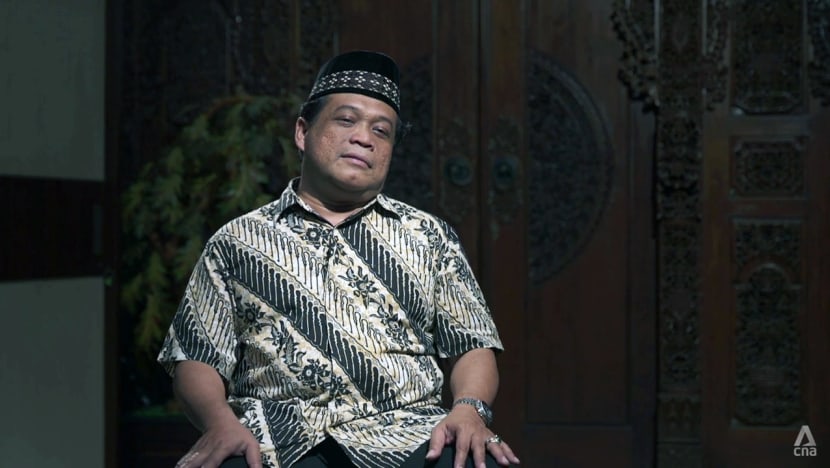
Both Lilik and Muhammad Ali were convinced by the “fantastic amount of money” the foundation appeared to have. Lilik remembered seeing an account statement from a foreign bank with an office located in Jakarta, which showed an amount in the trillions of rupiah.
Muhammad Ali also checked that the foundation was registered legally as a non-profit.
In total, from early 2014 to mid-2016, Lilik’s charity sent Dimas more than 20 billion rupiah, with the expectation of receiving 1 trillion rupiah.
Our two-part investigative special on online scams:
THE SIGNS OF SUSPICION – AND THE MURDERS
It was in 2014, journalist Faisol recalled, that the first hints of trouble surfaced.
One day in August, the chairman of Dimas’ foundation, Abdul Gani, approached Faisol and said he had something to tell him. “If I were to guess, it seemed like he had something he wanted to get off his chest … but he was hesitant to tell his story,” said Faisol.
Abdul was said to be one of Dimas’ closest friends – there were rumours they had known each other since they were teens.
Faisol began to investigate the foundation. “There were rumours of strange ongoings,” he said. “There were a few people who wanted to share, but they were afraid for their safety.”
His attempts to reach Abdul again were also unsuccessful.
On April 13, 2016, things took a dramatic turn.
Without a word to his family, Abdul disappeared. The next day, his body was found. His head was wrapped in a plastic bag and duct-taped. More duct tape covered his entire face. A noose was around his neck, his hands were tied, and there were bruises on the back of his head.
“It’s obvious that it’s murder,” said Abdul’s nephew, Muhammad Efendi, who identified the body.
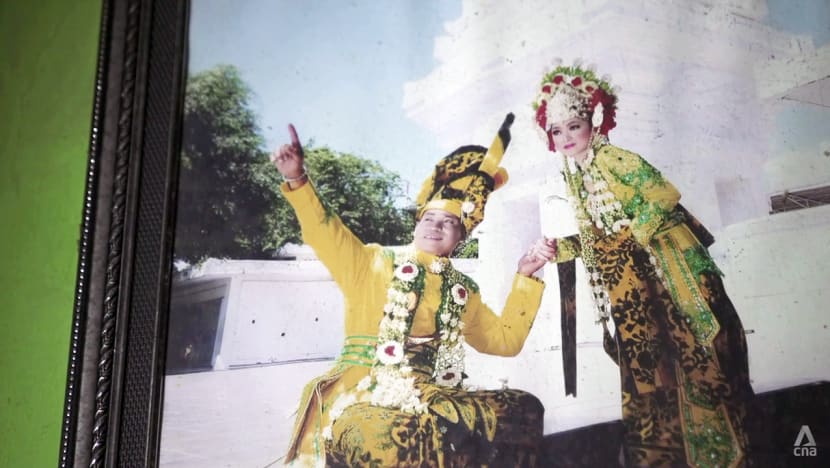
Abdul was a respected figure in Probolinggo regency and news of his murder shook the community. The manhunt for the murderers began.
In May, the police made arrests. One of them, Wahyudi, was the leader of the foundation’s security team. He was also an active member of the Kopassus, the Indonesian Army’s special forces command.
But there were still many unanswered questions. “Why did they murder? What was the motive?” said Rakhmad Hari Basuki from the East Java High Prosecution Office, who prosecuted the murders. “They had no grudge against Abdul Gani.”
More disturbing news surfaced. Abdul’s colleague was also missing – and had been for some time.
The disappearance of Ismail Hidayah, the foundation’s coordinator, had been reported by his wife more than a year ago. When Abdul was found murdered, the police figured out that Ismail had also been murdered.
His body had, in fact, been found in February 2015. But at the time, recalled journalist Babul, the unidentified corpse was completely unrecognisable. No one took notice, he added, because “why should we care about this unknown person”?
With the identification now made, it wasn’t long before investigators found the common thread. “Ismail, Abdul and Dimas – they’re known as old friends,” said Babul. “It means there are two people, close friends of Dimas Kanjeng, who (died of) unnatural causes.”
WATCH: Exposing the schemes of a spiritual conman in Indonesia (46:12)
THE LOYAL FOLLOWERS
In September 2016, the police raided Dimas’ compound. It was no ordinary arrest.
Besides the Probolinggo police, there were law enforcers from the East Java region, including a heavily armed tactical unit. In total, according to Faisol, there were about 2,000 police and personnel from the Indonesian Armed Forces.
“There were thousands of people living at the foundation, and they were willing to die for Dimas Kanjeng,” said Babul. The leader himself was found at the back of his foundation’s compound, hiding in the sports complex. Followers there wielded bamboo sticks and stones and blocked the police from entering.
It took the police two hours to take him into custody.
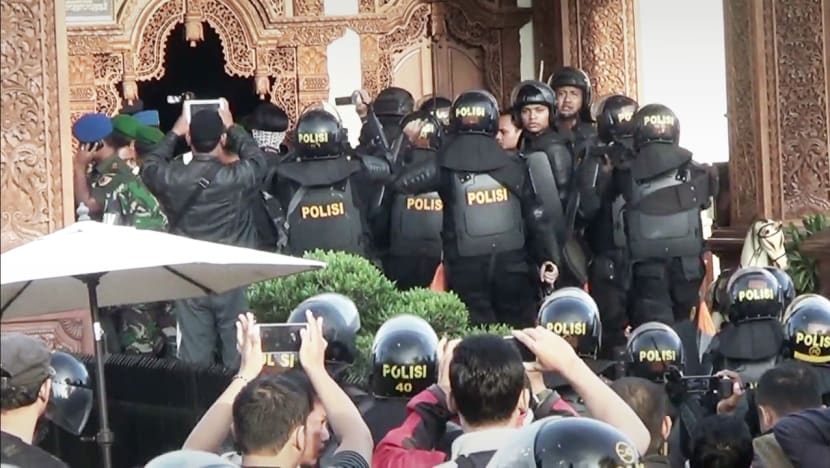
Why was Dimas able to inspire such loyalty among his followers?
“Indonesian people – we revere symbolism,” said Devi Rahmawati, a cultural studies lecturer from the University of Indonesia. “Dimas Kanjeng understands and makes use of that.”
For one, she said, he had changed his name from Taat Pribadi to Dimas Kanjeng – the word “Dimas” in local Javanese dialect refers to a male representative, while “Kanjeng” is a title that commands respect.
“He changed his corporate branding to ensure he is a figure beyond reproach,” she said.
There were also many photos of him with government ministers and other prominent people. While Devi noted that “anyone can take a picture together with these elites”, Dimas used it to “establish a reputation, so people see him as a trustworthy figure”.
Indonesia, she added, is a society with strong oral traditions. So, when people saw what Dimas could supposedly do, the news spread rapidly.
“The people who spread the rumours are not only people who have seen it with their own eyes … They are also people who are trusted in their own circle,” she said.
“It's not surprising then that the word spreads faster and is convincing.”
Among segments of the population, there is also a long-held belief in what is commonly termed black magic.
Victim Muhammad Ali recalled that even when the suitcases he had been given as a guarantee were handed over to the police, “they didn’t dare to open them”. He speculated that they may have got a shaman to help.
They later discovered that the suitcases were filled with dollar bills, likely expired, and counterfeit money.
“It was worthless,” he said. “I left them at the prosecutor’s office.”
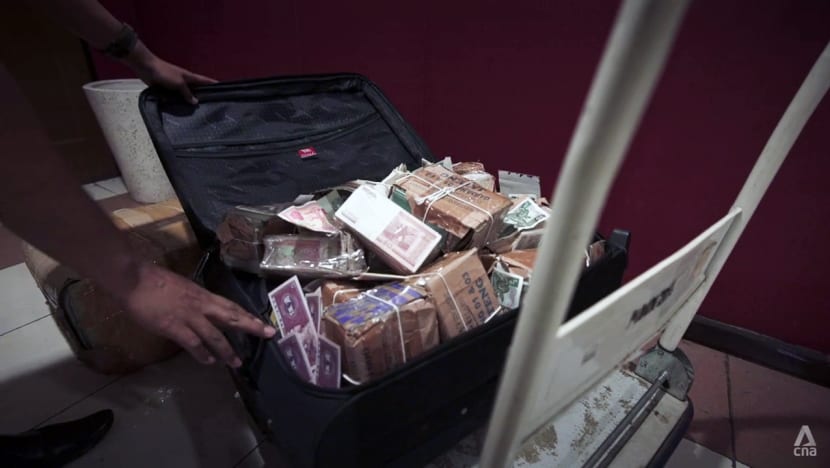
WAS HE THE MASTERMIND?
In February 2017, seven people stood trial for the murders of Ismail and Abdul, while Dimas was accused of ordering the murders.
It was easier to secure convictions of the seven, noted prosecutor Rudi Aji Prabowo, because there were witnesses to the murders.
“But none of the murder suspects dared to name Dimas as the mastermind, or to say that he was the one who gave the order,” said Rudi, who led a team of prosecutors to handle Dimas’ murder charge.
Given the public attention on the case and the number of fraud victims said to be involved, there were about 10 members on his team. In comparison, most cases would have about two prosecutors.
In Indonesia, prior to going to court, prosecutors would speak to suspects to confirm evidence gathered by the police and other case details. Rudi remembered his surprise at Dimas’ demeanour, which he maintained throughout the trial.
“He spoke softly, was actually a lot smaller (than he appeared in pictures) and was very calm,” he said. “He insisted he had nothing to do with the murders.”
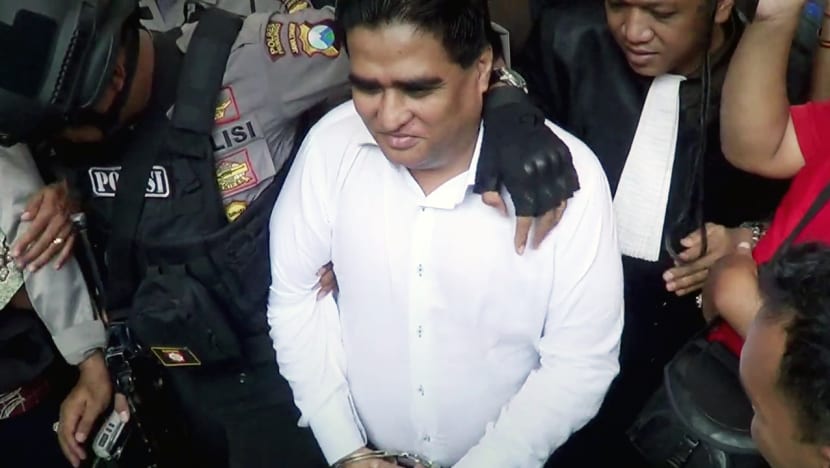
But prosecutors managed to prove that 100 million rupiah was given to the murderers to commit the crime.
It turned out that both Abdul and Ismail were killed to stop them from exposing the fraud. Both knew, said Rudi, that there was something wrong with the foundation.
“Dimas gave the order using some metaphor,” added Rudi.
He didn’t tell (the murderers) to kill; instead, he said, ‘Put an end to the matter.’ … We all know what he meant by that.”
In the end, the killers were sentenced to 10 to 20 years in prison. Prosecutors sought a life sentence for Dimas, but he received 18 years’ jail.
This was followed by his trial for fraud. Besides Lilik and Muhammad Ali, there were two other victims who made police reports about being scammed.
During the trial, witnesses testified that they truly believed in Dimas’ ability to conjure things up. “It was very interesting,” said prosecutor Rakhmad. “They said that at the foundation, he could attract not just money, but food – meatballs, soup … fruit salad.
“So the chief judge asked Dimas to prove this at his next trial appearance.”
That was when he admitted that he could not do it.
“It was clear that there was no investment or any type of business carried out by his foundation,” said Rakhmad.
Dimas was sentenced to an additional three years in prison for defrauding one victim. Though he was found guilty of defrauding the others as well, he received no additional jail time.
This is because, said Rakhmad, the maximum jail term in Indonesia is 20 years in consecutive cases, life imprisonment or the death penalty. Dimas had already received 18 years for the murders and three years for fraud, making a total of 21 years.
“Of course, we are disappointed,” said Lilik, who still hopes that his foundation can get its money back. “But we have to abide by the law.”
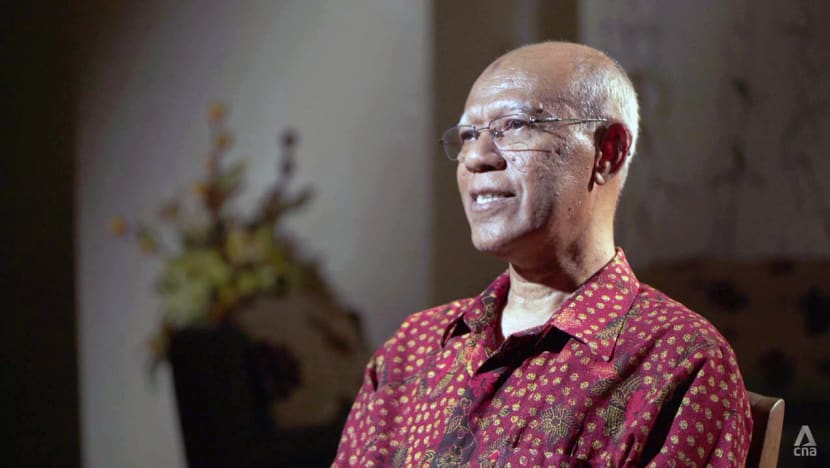
WHERE IS THE MONEY?
The total sum involved in the fraud charges tried in court was almost 100 billion rupiah, according to prosecutor Rakhmad. But this is merely a fraction of what Dimas and his foundation likely received.
There were no accounting reports, he said, and law enforcers couldn’t determine how many victims had made payment.
The total amount Dimas collected could be more than a trillion rupiah, he added. There were also those who deposited assets like land certificates or cars.
To this day, the whereabouts of the money remains a mystery.
“Investigators searched the (foundation’s compound) for bunkers, but they never found anything,” said Rakhmad. “(The money had) vanished into thin air.”
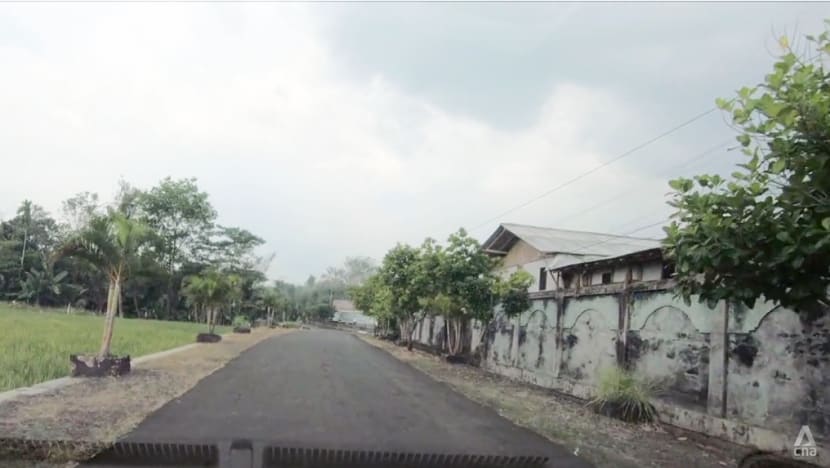
The compound lies deserted now – much shabbier than it used to be. It has become a no-outsider zone surrounded by high fences.
“It used to be open to the public,” said journalist Babul. “But it’s closed off now … not even police officers can walk in freely.”
Yet, he said, there are still about 300 people living inside. They are waiting for Dimas to be released.
Watch this episode of Catching A Scammer here.






















